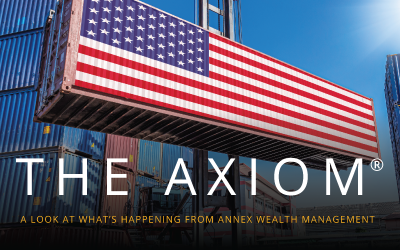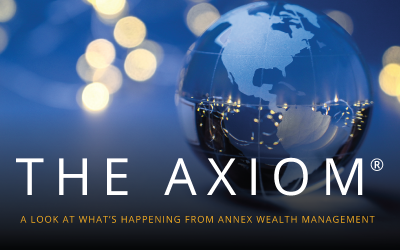New York – Wall Street experienced its worst drop in months on Wednesday as the ongoing rally that critics deemed overdone lost significant momentum. The S&P 500 saw a sharp tumble of 1.4%, marking its largest decline since April. This decline comes after the index reached a 16-month high just last week. The Dow Jones Industrial Average also took a hit, dropping 348 points, or 1%, while the Nasdaq composite fell 2.2%. This downward trend raises concerns about the sustainability of the recent market rally and the global financial system as a whole.
Credit Rating Downgrade
According to a report by Apnews.com, the bond market experienced mixed results after Fitch Ratings cut the credit rating of the U.S. government. Fitch has identified repeated standoffs in Congress regarding U.S. debt and the potential for default as contributing factors to its downgrade. This downgrade is significant since U.S. Treasurys are typically considered secure investments and play a vital role in the global financial system. This move echoes the downgrade made by Standard & Poor’s in 2011, which was accompanied by a European debt crisis and led to a volatility in the global stocks and bonds market.
Economic Concerns
The recent downgrade draws attention to the substantial debt held by the U.S. government and the challenges it faces in financing programs like Social Security and Medicare. While these issues are not new for investors, they continue to impact the market’s sentiment. Brian Jacobsen, the Chief Economist at Annex Wealth Management, downplayed the significance of Fitch’s downgrade. He stated, “When a country only issues debt in its own currency, the credit rating is irrelevant.” Investors remain focused on the broader concerns of a potential recession and corporate profit outlook.
Reports on the state of the economy and corporate profits were mixed, further adding to the skepticism surrounding the recent market rally. Critics argue that the rally has been too swift and unwarranted. Analysts suggest that some of the selling pressure on Wednesday may be attributed to investors locking in profits from the S&P 500’s impressive 19.5% year-to-date gain through July.
Job Market and Federal Reserve
The strength of the job market is a key factor contributing to market sentiment. Wednesday’s jobs report from ADP indicated that hiring in the private sector remains stronger than expected, albeit at a slower pace compared to the previous month. A solid job market can alleviate concerns about a potential recession. However, too-strong job market data could push the Federal Reserve to increase interest rates to combat inflation. The Fed has already raised rates with the aim of curbing inflation, which in turn poses a risk to the economy and investments.
Stocks Performance
Higher interest rates tend to impact high-growth stocks, particularly in the technology sector. As a result, tech giants such as Microsoft, Nvidia, and Amazon experienced significant declines, dragging down the broader market. Generac Holdings, a company specializing in generators and power products, saw the largest drop in the S&P 500 after reporting weaker-than-expected profits. SolarEdge Technologies also suffered a decline due to lower profits and revenue growth caused by higher interest rates affecting its U.S. residential customers. However, most companies have exceeded profit expectations this reporting season, though initial forecasts were low.
CVS Health and Humana were among the few stocks that recorded gains, with CVS Health posting better-than-expected results and Humana exceeding expectations for the latest quarter. Overall, approximately a quarter of the stocks in the S&P 500 saw gains.
International Impact
Global markets showed a broad decline following the U.S. credit rating downgrade, reflecting a cautious sentiment. Stock indexes in Europe and Asia experienced losses, echoing the concerns raised by the downgrade.
In the bond market, the yield on the 10-year U.S. Treasury rose slightly to 4.07% from 4.04% on Tuesday. This yield plays a crucial role in determining rates for mortgages and other loans. Meanwhile, the two-year U.S. Treasury yield slightly decreased to 4.89% from 4.91%.
*Key Takeaway:*
- Wall Street experiences its worst drop in months as the recent market rally loses momentum.
- Fitch Ratings downgrades the credit rating of the U.S. government due to repeated standoffs in Congress regarding U.S. debt.
- Economic concerns include the substantial debt faced by the U.S. government and uncertainty around corporate profits.
- A mixed jobs report heightens worries about a potential recession and the Federal Reserve’s response to inflation.
- High-growth stocks, particularly in the technology sector, suffer declines due to higher interest rates.
- Generac Holdings and SolarEdge Technologies report weaker-than-expected profits influenced by interest rates.
- Most companies have surpassed profit expectations this reporting season.
- International markets show cautious sentiment after the U.S. credit rating downgrade.
- The bond market sees mixed results with a slight rise in the 10-year U.S. Treasury yield.






